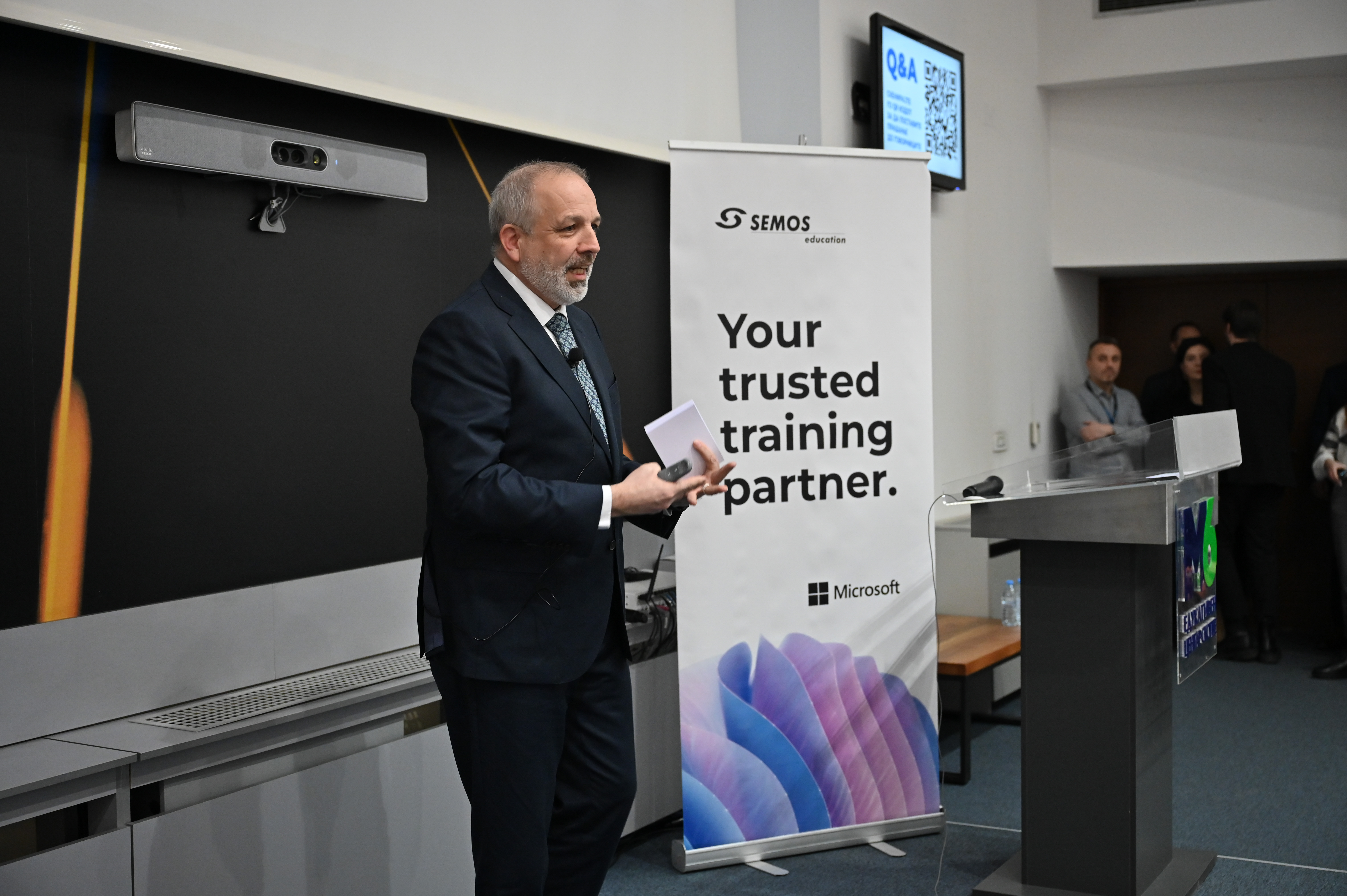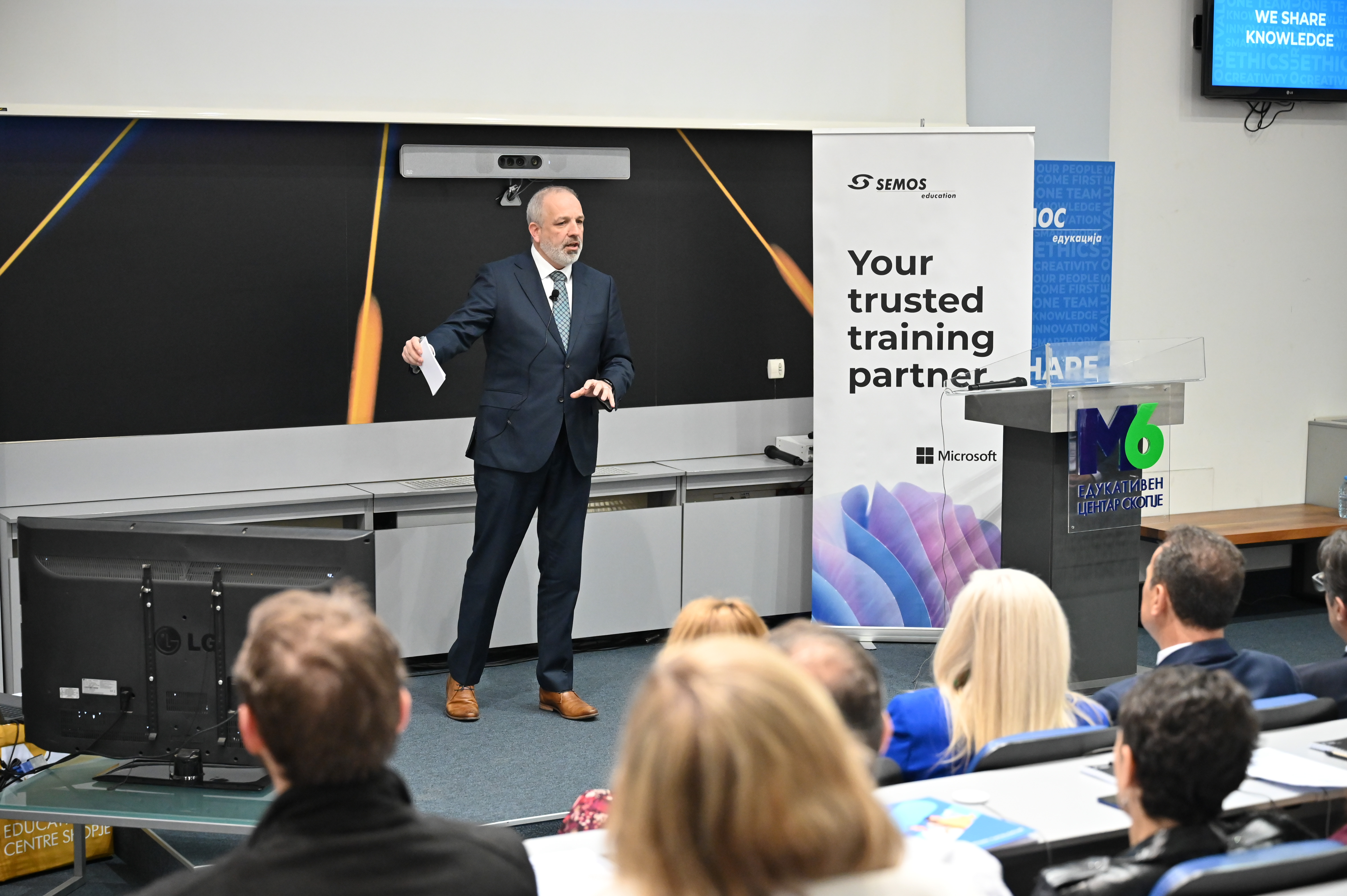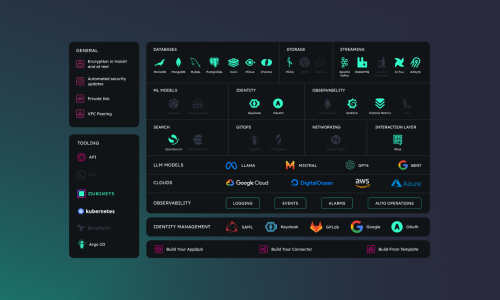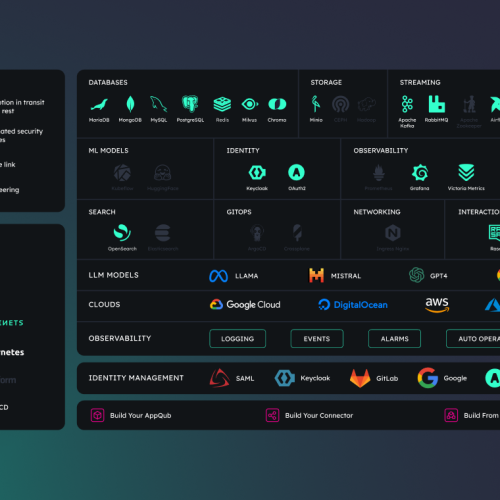In his roles as Chairman of the Board of the Leading Learning Partners Association (LLPA), and Program Director of Computrain from Netherlands, Patrick Kersten brings a wealth of experience and expertise to the table on the topic of IT training and how global IT companies are addressing the changing needs of our digital world.
With technologies like AI and tools such as ChatGpt and Microsoft Copilot M365 on the rise, there’s a growing demand for individuals with the right skills, as well as the right tools to train those that want to become a part of the industry.
LLPA’s journey from a small group of companies in 2009 to a global network of 32 training centers across 55 countries is a testament to the power of collaboration and innovation. Similarly, their commitment to empowering individuals with the skills needed for tomorrow’s technology has made it a leading IT training provider globally.
IT Logs caught up with Kersten during the “FutureForward: AI Skills in the Corporate World” event organized by Semos Education and M6 Educational Centre in Skopje, and discussed the future of technology education and how Computrain and Semos Education as LLPA members are playing their part in shaping it.

IT Logs: How important is AI skilling right now, especially with the rise of this technology?
Patrick Kersten: AI skilling is becoming very important and sooner or later, perhaps everybody will be facing it. About 20-30 years ago, back then it was about the IT people, but now it’s about everybody. Of course, IT professionals will need to manage systems and develop apps etc. and users, business users, executives, business decision makers, they need to know about a completely different angle of the spectrum. So, this is what we are trying to apply and make sure that everybody is able to receive training and get skills on their level.
There are so many tools that will change the world of skilling but will also change our businesses in the future. It can be very helpful in integrated programs where we are doing virtual instructor led training, but also in combination with self-based training.
We always combine it or we try to combine it also depending on what the customer wants with mentoring. So, with some Q&A sessions or a mentor who is who is keeping track of the progress of a student, especially when it’s a self-based component, we need to push the student because to make sure that they can keep working through studying and they need to finish with their tasks before they get to the trainer.
What are your thoughts on the adoption process – is it going to be easy or difficult for people to accept AI as a trainer?
I think that AI can easily become involved in mentoring students in their learning journey. And also adapting learning journeys because even if we think there’s one group of homogenic roles, I think everybody’s different. The first thing that goes quickly through my head on this part is what if person A goes slowly through one part, and person B goes quickly through the same part.
What AI can do is support these journeys and mentoring and adapt to everybody’s needs. And obviously with adaptive learning there is the case of reacting to how people are learning things that can become much bigger in the future.
And maybe even with Q&A sessions where maybe it’s not physical trainers anymore but there might be a hologram. For sure it will take some time before this AI hologram trainer will know how to react to students – how to act with somebody when they look bored or puzzled for example.
What we are also doing in the training industry right now is thinking about what the future will look like in five to ten years from now, what will our value be and there will certainly be added value. However we in the training industry need to adapt to the possibilities of AI and think a step further.
How fast does the AI do the whole training process, and what are the other effects?

For example, before February 2022 nobody heard about ChatGPT. Now, everybody knows about it and almost everybody is testing it, which means that it is moving way faster than other technologies.
This process will go very fast as tech companies are adopting generative AI in their systems. We have seen these examples with co-pilots, and it’s so amazing. And this will really change people’s lives, mainly because it is starting to affect everybody and it really accelerates the whole process.
How do AI tools affect IT training programs?
So, if a person takes Excel training, they might know 10 percent already of Excel but after they get home, they might know 20 percent – meaning that they will double their knowledge, but still they will be missing 80 percent. So, what AI tools can do is to support people using the tools they might not know, as long as users are able to describe their end goals.
They will become an integrated part of the people’s daily lives, business users, Office tools users will be able to iterate, specify, and dive deeper into whatever they are working on. Prompting is very important but beyond prompting, it’s also about knowing what you want. You have to be very clear in what you want and that will change our process as well.
With Microsoft Copilot we are already frontrunners in this segment and it is extremely important to integrate this into our regular courses already. But in the end, I think that will be sooner than later.
We need to have the power to train the people on their own level in the roles which are in their own stage of the transformation journey. So, there’s training for everybody, and also in modalities that people live – whether they want to have a hybrid training program or only instructor-led or only webinar just for awareness. I think there’s a skilling solution for everybody, and we provide these solutions to make sure that everybody can get the skills and every organization can benefit from that.
What about IT professionals themselves, how important is it for them to stay up to date with what is going on with AI?
Actually, all these users cannot use Copilot or any AI tool if it’s not being managed or developed by the IT professionals. So, it is important for AI engineers, as well as data engineers to be there and make sure that the data is correct. Because if the data isn’t good, the AI can’t do anything.
So, it will stay, and become even more important than it is right now. I think the AI transformation that we are facing now, will require even people with different roles. So, I think it’s also important to highlight that there will be a lot of new roles and enough opportunities for everybody in the world and to find a job that they like.
What we are currently doing with serving customers is reskilling people that are in a non-IT role to an IT role. And that enables customers and gives them the opportunity to not have to look outside of their company, because they have the talent already inside.
And the only thing you have to do is transform the skills from people in a role that will be non-existent or less important to roles that have a shortage of people. Computrain, for example , runs a lot of programs like that in Dutch companies.
What type of other trends do you think IT training will go through during the coming period?
It’s very difficult to tell and watch what will be the situation in one or two or three years. However, like I said earlier, adapting a training program to the learning needs of an individual and seamlessly connecting the components of a learning program to make sure the individual gets skilled at the right time, on the right subjects for the right role, will for sure become more and more important.
I think that we’ll be the first ones that will adapt content for specific people or specific roles. I think that it is and it will be an important one. What we are seeing now is that if a customer comes to us and says they want to have these people skilled to get into that role we can make it possible.
Of course, in our organization we have the experience for it and we have all this data already available. But it’s people doing that, and it would be a lot easier to use AI – so the AI gets a request from the customer converted to a good question for what we already know. In return, we can create a tailor-made program for this customer, for these roles, those new skills, and provide them with a personal skilling experience.













